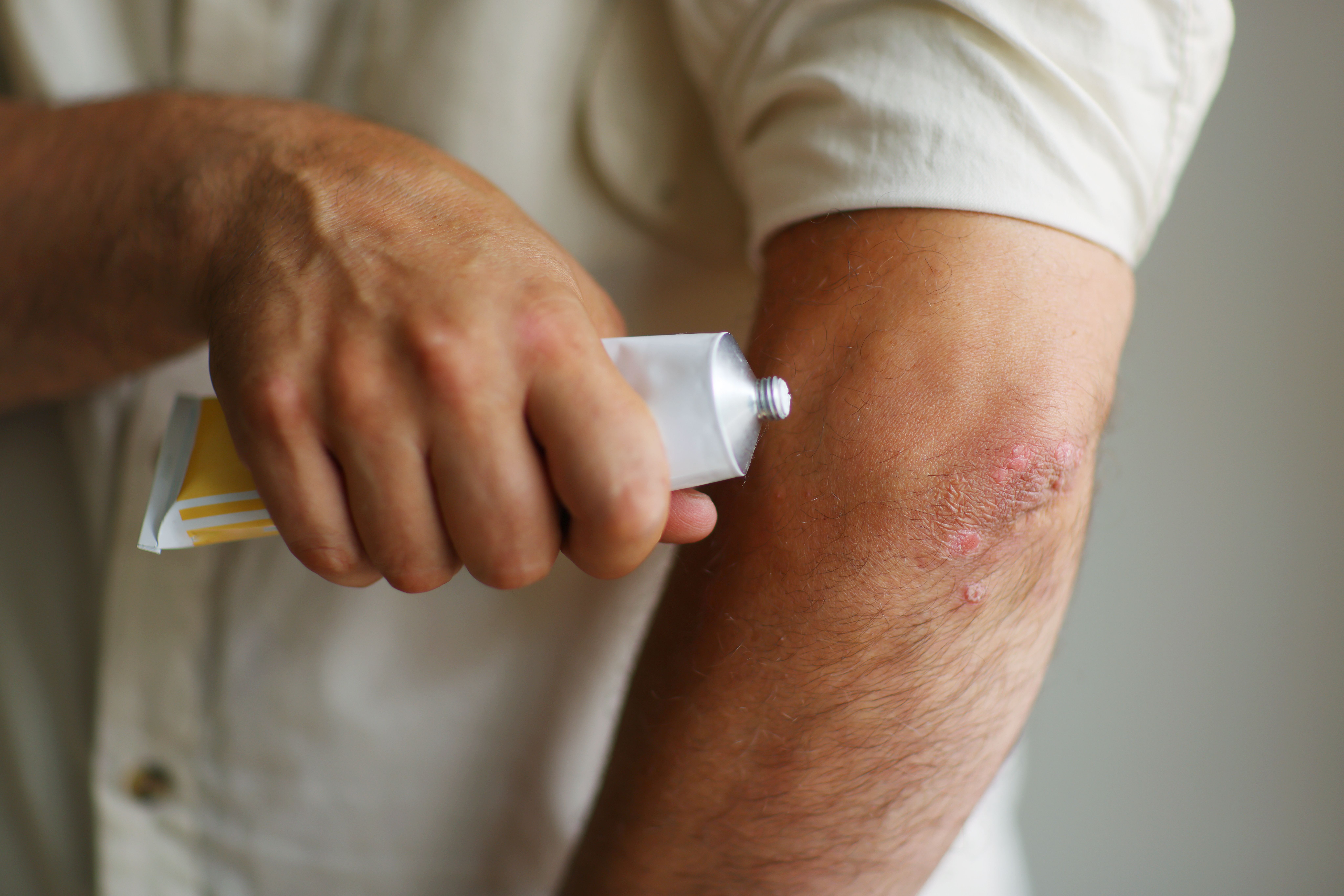- Center on Health Equity & Access
- Clinical
- Health Care Cost
- Health Care Delivery
- Insurance
- Policy
- Technology
- Value-Based Care
Topical PF-07038124 Demonstrates Superior Efficacy in Patients With AD, Plaque Psoriasis
A topical therapy, PF-07038124 0.01%, administered once daily was more effective than the vehicle control in patients with atopic dermatitis (AD) and plaque psoriasis, a study finds.
The topical phosphodiesterase 4 inhibitor PF-07038124 was well tolerated and demonstrated superior efficacy in patients with mild to moderate atopic dermatitis (AD) and plaque psoriasis compared with the placebo, according to a recent phase 2a study.

“Topical PF-07038124 is designed to be a potent, oxaborole-based PDE4 inhibitor with immunomodulatory activity in T-cell–based assays, contributing to inhibition of IL-4 and IL-13; thus, it could provide therapeutic benefit in the treatment of AD and plaque psoriasis,” wrote the researchers of the study. “The aim of this study was to assess the efficacy, safety, tolerability, and pharmacokinetics of topical PF-07038124 in patients with mild to moderate AD or plaque psoriasis.”
This randomized, double-blind clinical trial was published in JAMA Dermatology.
This study was conducted from December 21, 2020, to August 18, 2021, across 34 sites in 4 countries. Following a 6-week screening period, eligible participants were randomized 1:1 to receive a once-daily dose of PF-07038124 or a vehicle control for 6 weeks, with a safety follow-up period of 4 to 5 weeks.
Participants included in the study were aged 18 to 70 years at screening and a body weight of at least 50 kg. Patients with plaque psoriasis had received a diagnosis at least 6 months prior to day 1, a body surface area (BSA) covering 5% to 15% excluding the scalp, and a Physician’s Global Assessment (PGA) score of 2 (mild) or 3 (moderate) at screening and day 1.
The primary end point in patients with plaque psoriasis was the change from baseline (CFB) in Psoriasis Area and Severity Index (PASI) score at 6 weeks. Secondary end points included CFB in PASI scores at each study visit, the proportion of patients with 75% improvement in PASI score at each study visit, and the proportions of patients with a PGA score of clear (0) or almost clear (1), and at least a 2-point improvement from baseline at week 6 and at each study visit.
Additionally, for all patients who received at least 1 dose of treatment, incidence of treatment-emergent adverse events (TEAEs), serious adverse events (AEs), clinically significant changes in vital signs, electrocardiography, and laboratory tests were evaluated. Furthermore, the researchers determined plasma PF-07038124 concentrations after topical administration using liquid chromatography with tandem mass spectrometric assay, which was validated in patients with AD and plaque psoriasis. The lower limit of quantification was 10 pg/mL.
A total of 152 patients were screened, of whom 104 were included in the study. Most participants were White (83.7%) and female (52.9%). The mean (SD) age was 43 (15.4) years.
Of these patients, 34 had plaque psoriasis, including 20 men and 14 women with a mean (SD) age of 51.8 (12.3) years in the treatment group and 51.2 (10.8) years in the control group. Furthermore, 15 (88.2%) of patients with plaque psoriasis completed treatment in the PF-07038124 group and 13 (76.5%) of patients with plaque psoriasis completed treatment in the control group.
At week 6, patients in the PF-07038124 groups showed significantly greater improvements compared with the control groups. PASI scores had a CFB of −4.8 vs 0.1; difference, −4.9 (90% CI, −7.0 to −2.8; P < .001). The number of patients who experienced TEAEs was comparable between treatment groups in patients with plaque psoriasis, with 3 (17.6%) with a TEAE in the PF-07038124 group and 6 (35.5%) in the control group. No application site reactions were found with PF-07038124 treatment.
“Patients with mild to moderate AD and plaque psoriasis showed good clinical responses with no application site reactions and no treatment-related TEAEs with PF-07038124,” wrote the researchers. “Treatment with PF-07038124 was well tolerated and without the considerable systemic absorption that could lead to more serious AEs and changes in other chronic health conditions.”
Reference
Eichenfield LF, Tarabar S, Forman S, et al. Efficacy and safety of PF-07038124 in patients with atopic dermatitis and plaque psoriasis: a randomized clinical trial. JAMA Dermatol. Published online December 20, 2023. doi:10.1001/jamadermatol.2023.4990
